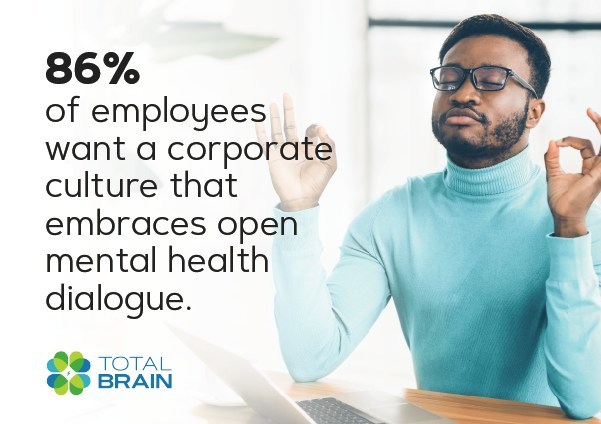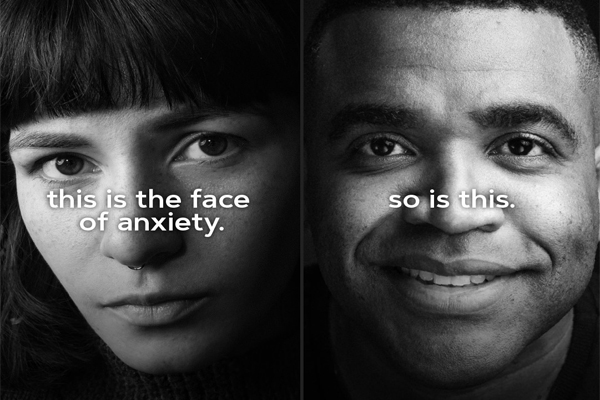A new study has revealed that 86% of US workers want a corporate culture that encourages an open dialogue about mental health challenges.
The survey from Total Brain, revealed that 77% of US employees believe their employers genuinely care about staff mental health; and 44% say corporate leadership is empathetic to mental health concerns. Yet, caring and empathetic leadership is not enough for employees returning to the workplace after a year-long ride on a pandemic-fuelled roller coaster.
In fact, against the backdrop of accelerated vaccination and an anxious workforce increasingly being called back to the workplace; 50% of staff feel their employers have not done enough to address the mental impact of Covid-19. Findings also reveal that the vast majority of workers do not feel that their employer has created an open workplace culture when it comes to mental health. A staggering 86% say that they want their employer to build a corporate culture that encourages candid conversations; as well as honest dialogue about mental health issues and challenges.

FACE OF DEPRESSION & ANXIETY
These findings align with a pre-pandemic poll carried out by the American Psychiatric Association; which reveals that half of US workers are not comfortable talking about their mental health at work. One-thirdof staff are also worried about the consequences of those conversations. Additionally, another survey found that younger employees worldwide fear talking about mental health issues with managers and bosses. “Many corporate leaders, while caring and empathetic, are not fully aware of the range of issues and challenges their employees are facing; nor the fear employees have about coming forward seeking help,” noted Louis Gagnon, CEO of Total Brain. “The face of anxiety, depression and PTSD is not always what one imagines. Mental health issues are often silent and invisible.”
“Measuring and benchmarking mental health issues within an organisation; bringing conversations to the forefront; and encouraging your employees, especially those in leadership positions, to open up about their own challenges has never been more important,” added Gagnon.
TACKLING MENTAL HEALTH STIGMA
“Large employers understand that the transition back to the workplace for many employees may create additional stress, on top of existing anxieties and other negative impacts of the pandemic era,” noted Colleen McHugh, Executive Vice President of the American Health Policy Institute; and Strategic Advisor of HR Policy Association. “While the latest Mental Health Index shows a 51% increase in the risk of PTSD among employees ages 40-59; large employers are engaged at the C-suite level in tackling this and the stigmatisation around all mental and behavioural health problems. Through the increase in new initiatives and technologies, our hope is that conversations around mental and behavioural health begin to normalise; and there will be better access to providers and support services for employees and their families.”

“The data shows that recent events present leaders with a golden opportunity to improve the future of work for workers and organisations,” added John Boudreau, Professor Emeritus of Management and Organization; and senior research scientist with the Center for Effective Organizations at the University of Southern California. “Improving mental health and mental fitness can offer immense mutual benefits.”
TACKLING MENTAL HEALTH STIGMA
In response to the survey findings, Total Brain has launched #thisisnormal; a multi-channel brand campaign designed to break the stigma associated with mental health. The campaign is challenging people’s preconceived notions about what mental conditions look like. The company is inviting business leaders, employees and mental health clinicians to reflect on their own mental health; and encouraging them to defy the stigma surrounding mental health by sharing their mental health challenges/story. To learn more or find out more about the campaign, click here.







































